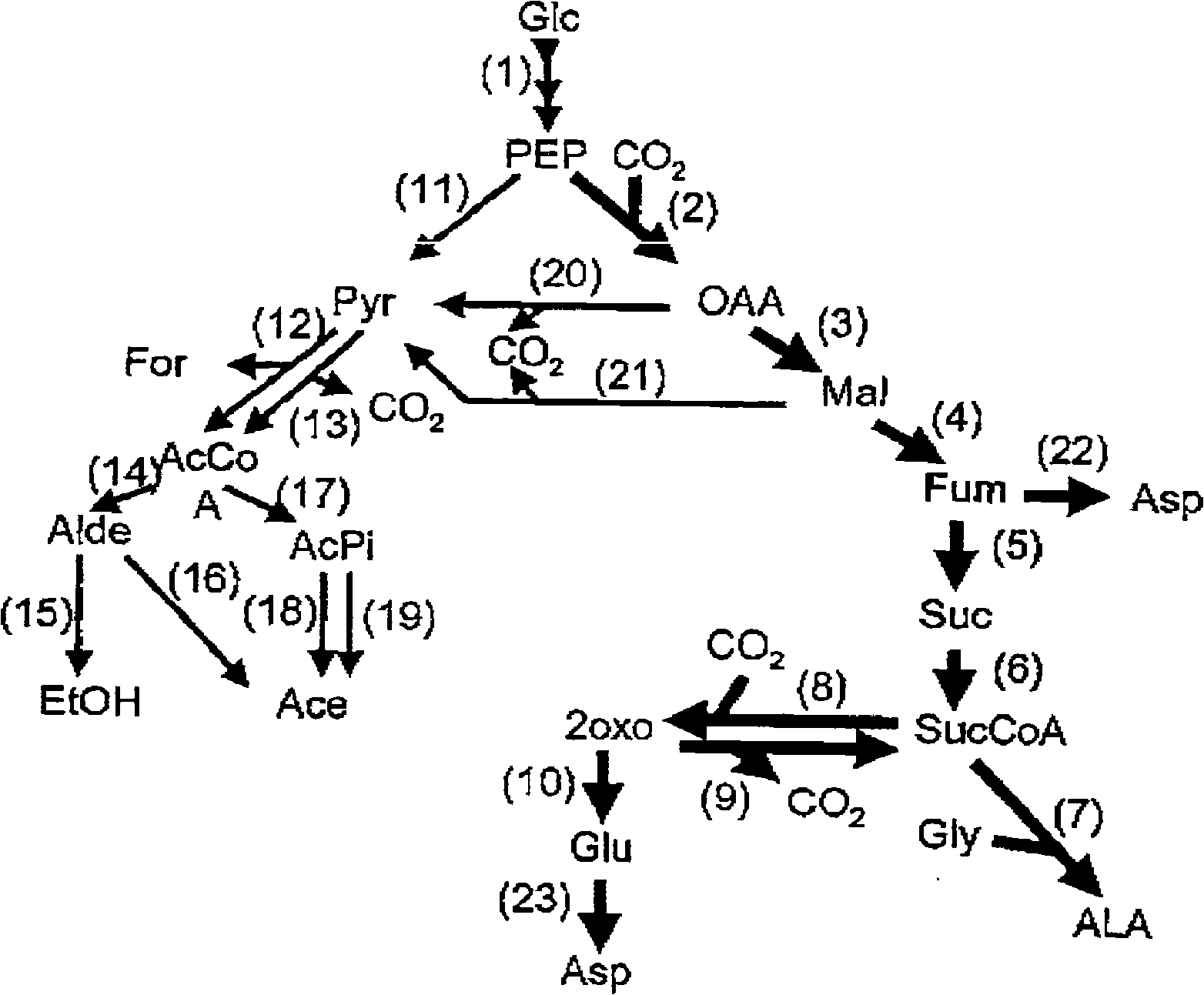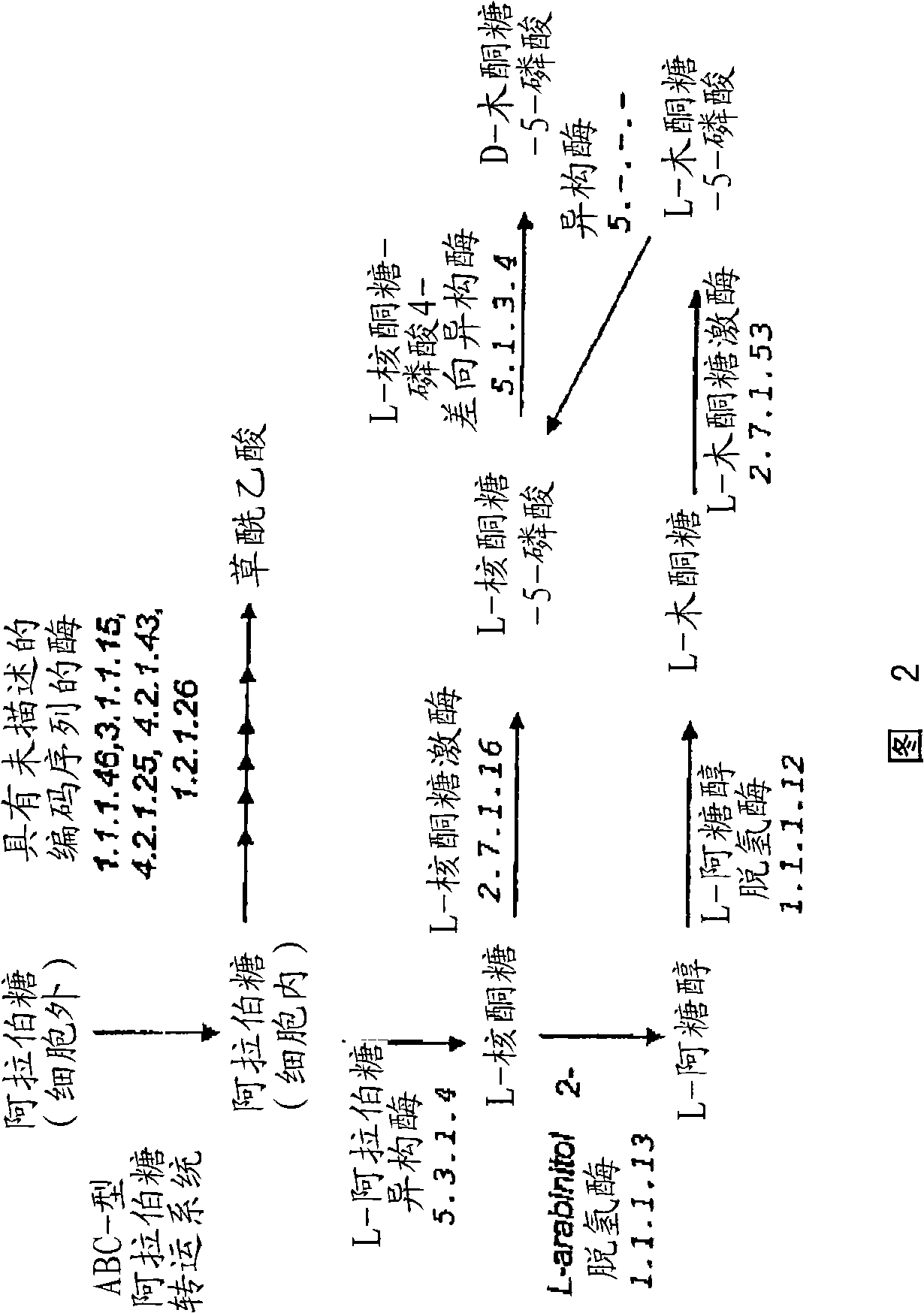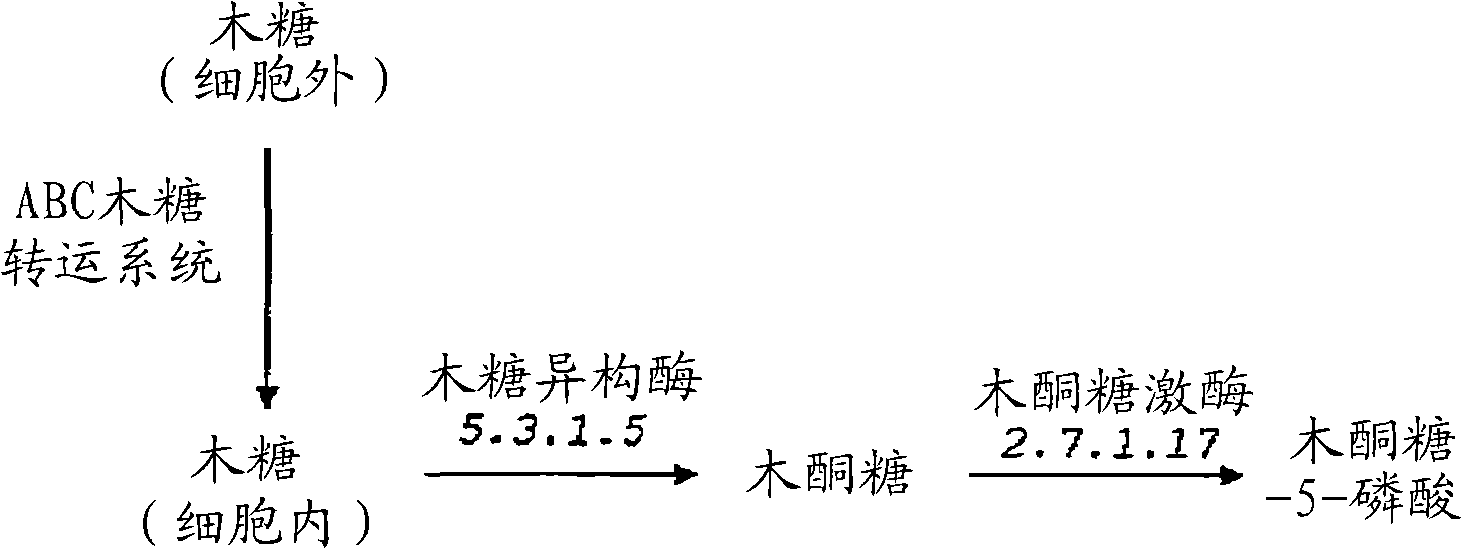Genes from actinobacillus succinogenes 13oz (atcc 55618) for production of chemicals from the a. succinogenes C4-pathway
A technology of chemical products and pathways, applied in the fields of peptides, fermentation, bacteria, etc.
Inactive Publication Date: 2008-10-01
MICHIGAN STATE UNIV
View PDF10 Cites 11 Cited by
- Summary
- Abstract
- Description
- Claims
- Application Information
AI Technical Summary
Problems solved by technology
Much effort has been devoted to engineering E. coli strains to produce large amounts of succinate, but none of the engineered E. coli strains surpassed A. succinogenes in succinate production
Method used
the structure of the environmentally friendly knitted fabric provided by the present invention; figure 2 Flow chart of the yarn wrapping machine for environmentally friendly knitted fabrics and storage devices; image 3 Is the parameter map of the yarn covering machine
View moreImage
Smart Image Click on the blue labels to locate them in the text.
Smart ImageViewing Examples
Examples
Experimental program
Comparison scheme
Effect test
Embodiment 1
the structure of the environmentally friendly knitted fabric provided by the present invention; figure 2 Flow chart of the yarn wrapping machine for environmentally friendly knitted fabrics and storage devices; image 3 Is the parameter map of the yarn covering machine
Login to View More PUM
 Login to View More
Login to View More Abstract
Actinobacillus succinogenes genes and methods of using the genes in genetically engineered A. succinogenes so as to improve production of chemicals such as succinate, fumarate, malate, 5-aminolevulinate, 2-oxoglutarate, glutamate, and aspartate. The genetically engineered A. succinogenes strains are capable of overexpressing C4 enzymes. The genetically engineered A. succinogenes can have one or more gene knockouts or modifications that inhibit C3 enzymes. The fluxes supplying substrate to the C4 pathway can also be improved in some of the genetically engineered A. succinogenes.
Description
[0001] Cross References to Related Applications [0001] This application claims the benefit of Provisional Application No. 60 / 705,841, filed August 5, 2005, which is hereby incorporated by reference in its entirety. Statement Regarding Federally Funded Research or Development [0002] This work was supported by funding from the National Science Foundation. It was made possible by the genome-sequencing efforts of the Department of Energy's Joint Genome Institute. The US Government has certain rights in this invention. Background of the invention a.Technical field [0003] The present invention relates generally to metabolic engineering, and more particularly to engineering Actinobacillus succinogenes to produce Chemicals such as succinate, fumarate, malate, 5-aminolevulinic acid ( 5-aminolevulinate), 2-oxoglutarate, glutamate, and aspartate. In particular, the invention relates to inhibiting C3 pathway enzymes and overexpressing C4 pathway enzymes. The present inven...
Claims
the structure of the environmentally friendly knitted fabric provided by the present invention; figure 2 Flow chart of the yarn wrapping machine for environmentally friendly knitted fabrics and storage devices; image 3 Is the parameter map of the yarn covering machine
Login to View More Application Information
Patent Timeline
 Login to View More
Login to View More Patent Type & Authority Applications(China)
IPC IPC(8): C12N1/20A61K39/02
CPCC12P7/46C07K14/285C12P7/50C12P13/001C12P13/14C12P13/20A61K39/02C12N1/20
Inventor J·G·蔡库斯J·B·麦金莱M·莱夫尼克斯C·维埃耶
Owner MICHIGAN STATE UNIV
Features
- R&D
- Intellectual Property
- Life Sciences
- Materials
- Tech Scout
Why Patsnap Eureka
- Unparalleled Data Quality
- Higher Quality Content
- 60% Fewer Hallucinations
Social media
Patsnap Eureka Blog
Learn More Browse by: Latest US Patents, China's latest patents, Technical Efficacy Thesaurus, Application Domain, Technology Topic, Popular Technical Reports.
© 2025 PatSnap. All rights reserved.Legal|Privacy policy|Modern Slavery Act Transparency Statement|Sitemap|About US| Contact US: help@patsnap.com



